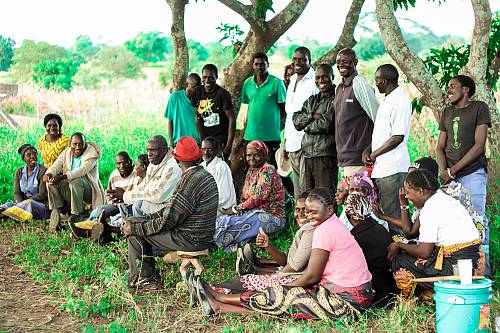In Zambia, the International Assistance project to safeguard Kuyabila poetry begins
- 7 June 2022
- Zambia,
Being one of the five domains of the 2003 Convention, oral traditions and expressions encompass an enormous variety of spoken forms including proverbs, riddles, tales, nursery rhymes, legends, myths, epic songs and poems, charms, prayers, chants, songs, dramatic performances and more. Oral traditions and expressions are used to pass on knowledge, cultural and social values, and collective memory.
The International Assistance (IA) mechanism is essential in keeping alive those oral traditions and their richness, such as Kuyabila in Zambia, the poetry of the Tonga people. It is accompanied by music and a special dance and performed during various social gatherings and traditional ceremonies. It also serves as an educational tool in raising awareness on issues such as gender-based violence and health-related matters. However, the majority of Kuyabila practitioners today are elderly, putting the practice at risk of extinction if safeguarding measures are not pursued.
This two-years project is ongoing, and many activities related to safeguarding this living heritage are organized. The Living Heritage Entity has recently received news from the field, after the project was launched last April. Two preparatory meetings were organized in the southern province of the country with representatives of the communities. Key safeguarding measures, such as community-based inventories, and the principles of the 2003 Convention were introduced to community leaders and members of community-based organizations. Trainings will also take place.
Many safeguarding projects have been granted International Assistance under the 2003 Convention, and materials have been developed to ensure that State Parties are supported in the elaboration of requests.
